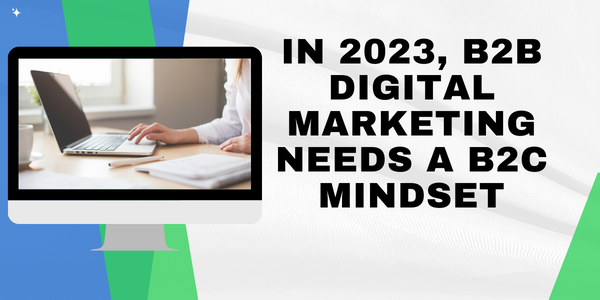As a B2B marketer, it is essential to find the most effective channels for reaching and engaging your target audience, which is traditionally considered very different from a B2C audience. In the past, B2B audiences were considered more serious, and sales-oriented, preferring long-form content which catered to their value proposition needs. B2C audiences, however, were considered to enjoy candid, short-form content that was geared towards entertainment and leisurely time.
However, the blurring of lines by social media on what is or isn’t ‘valuable’ content for audiences has taken hold strongly in reshaping the way we look at audience segmentation. Email marketing now uses humour, emojis and animated GIFs as part of their design, social media platforms like TikTok, Instagram and even Snap heavily feature key opinion leaders engaging with those platforms’ audiences with professional content.
A key reason is because today’s B2B professional is someone who lives their professional life with an overlap into their personal life. They check their emails on their phone before starting their morning, watch multiple screens by breakfast and use more than one social media platform by lunch, usually simultaneously. For millennial business customers, there are no B2B or B2C platforms. They’re all catering to him at the same time.
While traditional B2B marketing channels such as industry publications and trade shows may still be relevant, it is worth considering expanding your reach by leveraging B2C offerings.
One reason is the sheer size of the B2C platform user base. Older platforms like Facebook, Instagram, and Twitter have billions of active users, giving B2B marketers access to a much wider audience than they may be able to reach through their usual, highly selective channels. This can prove valuable for reaching decision-makers who may not be actively engaged with industry publications or events.
In addition to this, B2C platforms also offer highly sophisticated targeting capabilities. For example, Instagram allows marketers to target users based on a wide range of factors such as job title, industry and professional interests. This level of targeting allows B2B marketers to reach their specific audience with precision, increasing engagement and conversion. Content formats on B2C platforms are also more in number, which can be effective for B2B marketing. For example, video content has become increasingly popular on platforms like Instagram and Snap, which were traditionally image-only platforms, and can be a powerful way to showcase products and services to a wider audience. Additionally, B2C platforms offer the ability to conduct live streaming, which can be a valuable tool for hosting webinars, product demonstrations, and other interactive content.
Perhaps the most powerful element of B2C platforms that can benefit B2B markets is the impact of word-of-mouth referrals. When B2B companies create engaging content that resonates with their audience on B2C platforms, there is a higher likelihood that the content will be shared, increasing the brand’s visibility and reach. This can be especially valuable for companies that may have a longer sales cycle and rely on referrals and word-of-mouth to generate leads.
From a more emotional perspective, B2C platforms tend to humanize brands. Many companies can come across as technical or difficult to relate to even for professionals on a platform like LinkedIn or on the company website. Using less traditional platforms can help showcase the people and culture behind the brand, making it more relatable.
While the reasons for B2B marketers to use B2C platforms are quite compelling and convincing, bear in mind success on these platforms requires an approach that’s different from traditional B2B marketing. The mindset itself needs to change. B2B marketers need to create content that is more visually appealing and easy to consume. Experiment with different formats, tones of voice, imagery and content types to see what works best. Measure and test, refine and finally engage to make the most of an increasingly B2C business world.
While success requires a different approach than traditional ways of working, the potential benefits make it worth considering as part of a comprehensive marketing strategy.



